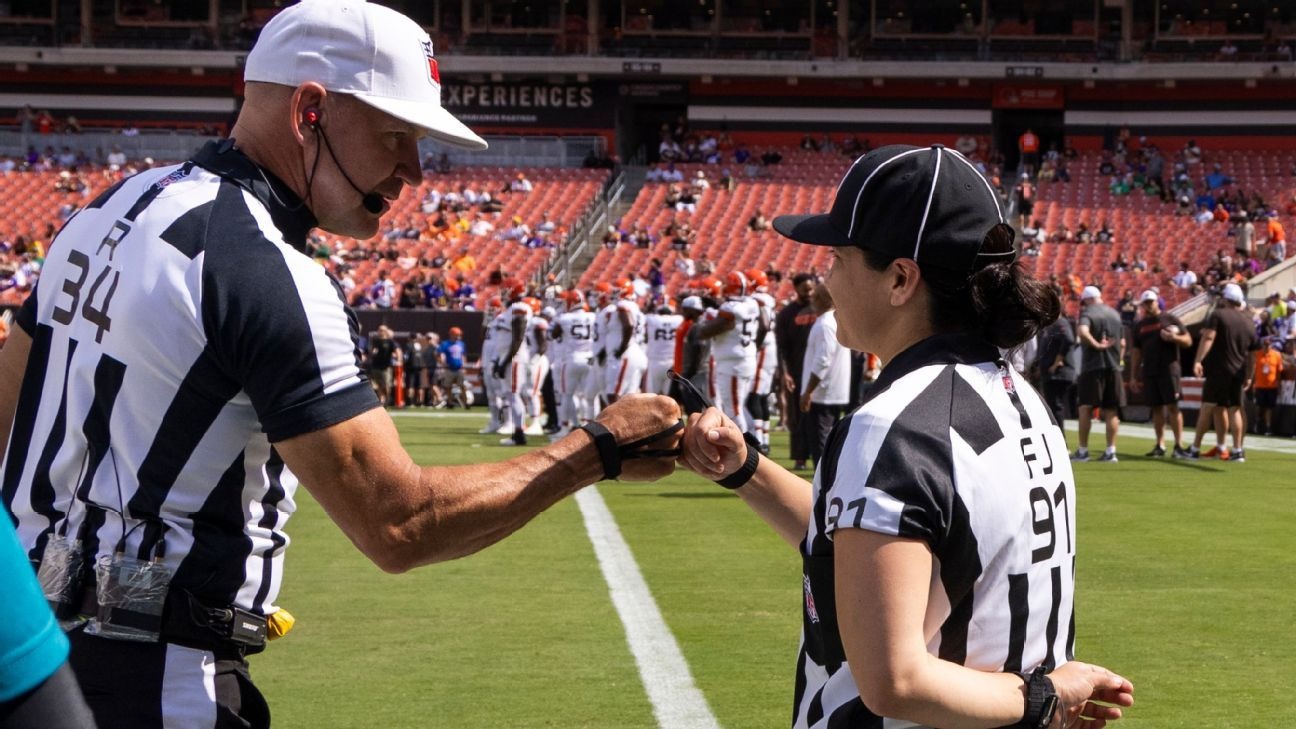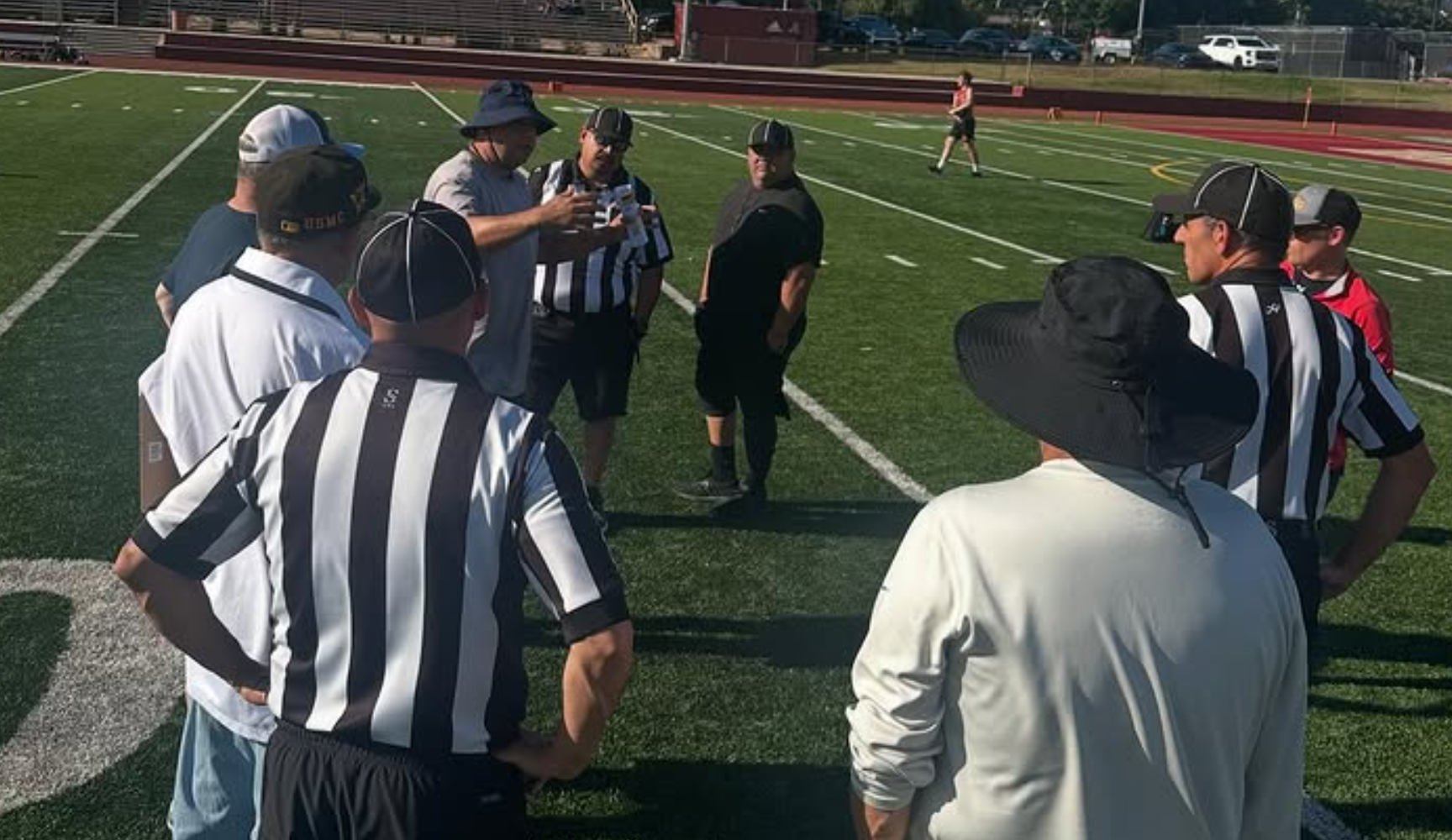We’re in the thick of the season now with league play in full swing. Our officiating across the board has been stronger week in and week out – but league play means even larger emphasis on how we handle ourselves, how we enforce the rules, and how we prepare for our games. Let’s continue raising the standard to meet the importance of the next month of the season as teams vie for league titles and playoff appearances.
Overtime Procedures
Greg Truex sent out an email to all CFOA members today outlining proper overtime mechanics and responsibilities. You can also find this on our website sfvfootballunit.org under Forms and Resources. If you haven’t reviewed it yet, make sure you do. Every crew should designate someone on their crew to be the overtime expert – though all officials should take the time to read and understand the process. Don’t wait until it’s 28-28 at the end of regulation to start figuring things out.
Ineligible Downfield Rule
This is one of the hardest calls to get right and one of the easiest to get wrong. The only way to be consistent is to approach it with discipline. Use a two-step process: First, identify an ineligible lineman clearly downfield (we want to see them 3+ yards beyond the line of scrimmage before we consider IDP. Then, find the ball. If the quarterback still has the ball in hand and then throws a legal forward pass that crosses the neutral zone untouched, throw your flag. If the ball is already in flight by the time you find it, hold the flag – the player more times than not was legal at the time the ball was released. Let’s make sure our calls are both correct and consistent.
Official-to-Official Banter
Remember, you can’t quote silence. Last week, a photographer overheard two of our officials talking on the sideline about how they didn’t want the game to go to overtime. The photographer then asked them which team they were rooting for. Even if it’s just joking around, it opens the door for unnecessary embarrassment for you and the entire association. Stay professional. Save it for after the game.
Game Management and Unnecessary Roughness
We’ve had many games escalate due to late hits and unnecessary roughness situations. This needs to be cleaned up. Diving on players already down, supplex tackles, take-down holds, and shots well behind the play are not part of football. The game is violent enough without allowing extra. Throw the flag early in the game to set the tone and prevent bigger issues later. Trust what you see, and don’t talk yourself out of fouls that clearly cross the line.
Kicking game enforcement
Take the time to slow down and enforce fouls on kicking plays correctly. Things can get convoluted quickly. Fouls during free kicks are enforced from the previous spot in almost all cases. Fouls during scrimmage kicks may qualify for PSK – review what the PSK requirements are. Fouls during the return in both cases are enforced as normal. We have had a few instances of fouls by R during the free kick enforced from succeeding spot. Take the time to slow down and identify when the foul occurred so that our enforcements are right.
Illegal Participation and Deception
You may have seen the Oklahoma deception play against Auburn last weekend. Be ready for a high school team to try to copy it. Remember, deception plays in NFHS are illegal by rule. The reference is 9-6-4-d: ‘It is illegal participation to use a player, replaced player, substitute, coach, athletic trainer or other attendant in a substitution or pretended substitution to deceive opponents at or immediately before the snap or free kick.” The penalty is live-ball illegal participation, enforced 15-yards from the previous spot.
Good luck this week and be ready from the opening whistle



